Text
Mapping Out the Future Landscape of Data Science: Essential Skills for Tomorrow's Professionals
In the rapidly evolving realm of data science, the role of the data scientist is set to become increasingly pivotal. To thrive in this dynamic landscape, it's imperative to cultivate a diverse range of skills that seamlessly blend technical expertise with adaptability. Let's explore the key proficiency that will shape the trajectory of data science in the foreseeable future from the best data science course in Bangalore.
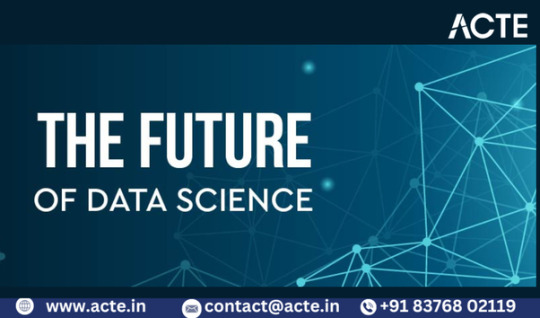
Advanced Programming Skills Refinement: A firm grasp of programming languages such as Python, R, and SQL lays the groundwork for success in data science. Continuously honing coding abilities and staying updated with the latest language advancements are indispensable practices.
Mastery of Machine Learning and AI Techniques: As artificial intelligence continues to reshape industries, a comprehensive understanding of machine learning methodologies is essential. From basic regression techniques to more complex deep learning algorithms, staying informed about advancements in this field is paramount.
If you want to learn more about Data Science, I highly recommend the Data Science online training because they offer certifications and job placement opportunities. You can find these services both online and offline.
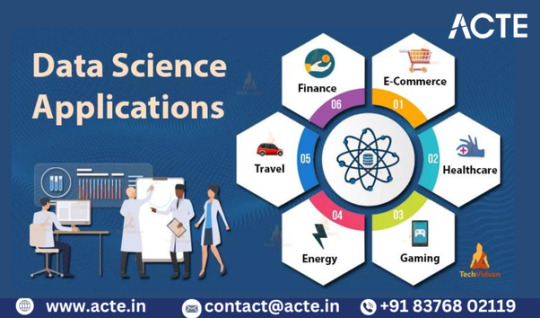
Statistical Competence: A strong foundation in statistical principles is essential for drawing meaningful insights from data. Proficiency in probability theory, hypothesis testing, and experimental design empowers data scientists to make informed decisions and draw accurate conclusions.
Expertise in Data Visualization: The ability to effectively communicate insights through visual representations is invaluable. Leveraging tools such as Matplotlib, Seaborn, and Tableau allows data scientists to create compelling visualizations that facilitate understanding and drive decision-making.
Familiarity with Big Data Technologies: With the exponential growth of data, proficiency in big data technologies like Hadoop, Spark, and Kafka is indispensable. Mastery of efficiently handling large datasets and extracting actionable insights is in high demand.
Domain-Specific Knowledge: Understanding the nuances of the industry in which you operate is critical for applying data science effectively. Whether it's finance, healthcare, or marketing, possessing domain expertise enables data scientists to ask pertinent questions and derive actionable insights.
Adherence to Ethical Data Practices: As data assumes a central role in business operations, maintaining ethical standards and ensuring data privacy is paramount. Data scientists must navigate complex ethical considerations to ensure responsible data usage.
Commitment to Continuous Learning and Flexibility: The field of data science is characterized by constant innovation, with new tools and methodologies emerging regularly. Cultivating a mindset of continual learning and adaptability is essential for staying ahead in this ever-evolving landscape.
In summary, the future of data science holds immense promise, but achieving success requires a diverse skill set and a dedication to ongoing learning. By refining technical abilities, staying abreast of industry trends, and deepening domain knowledge, aspiring data scientists can position themselves for success in the exciting journey ahead.
0 notes
Text
Exploring Data Mining: Unraveling its Wonders and Advantages
In the modern digital epoch, where data burgeons incessantly, the notion of data mining arises as a guiding light amidst the vast sea of information. But what precisely does data mining entail, and what makes it so crucial? Let's embark on a voyage to decode the essence of data mining and scrutinize its diverse benefits.

Understanding Data Mining
Imagine data mining as an expedition through a boundless landscape of data. It encompasses the process of uncovering patterns, trends, and insights from extensive datasets, employing various methodologies spanning statistics, machine learning, and artificial intelligence.
Consider having access to an extensive reservoir of data, including customer transactions, website interactions, or social media engagements. Data mining empowers you to plunge into this reservoir of information, extracting valuable insights that can guide decision-making, predict future trends, and refine processes for optimal efficiency.
A Multitude of Benefits
1. Revelation of Insights
Data mining enables organizations to unearth invaluable insights concealed within their data. By scrutinizing patterns and correlations, businesses can attain a deeper understanding of customer behaviors, market dynamics, and operational inefficiencies.
2. Empowered Decision-Making
Informed decision-making forms the bedrock of successful enterprises. Data mining equips decision-makers with actionable insights, enabling them to make informed choices grounded in data-driven evidence, facilitating growth, risk management, and seizing opportunities.
3. Predictive Analytics
One of the most potent applications of data mining is predictive analytics. By analyzing historical data, organizations can construct predictive models to forecast forthcoming outcomes with remarkable precision. Whether anticipating customer attrition, forecasting demand, or identifying potential risks, predictive analytics furnishes businesses with foresight to proactively navigate future scenarios.
If you want to learn more about Data Science, I highly recommend the Data Science online training because they offer certifications and job placement opportunities. You can find these services both online and offline.
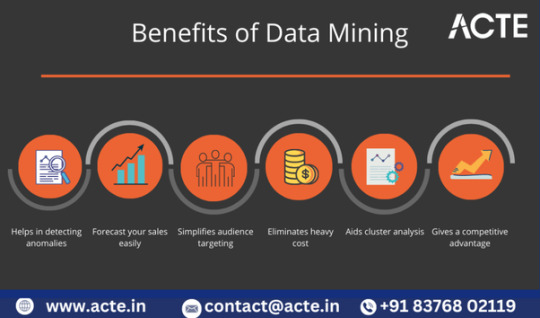
4. Customized Marketing
In today's fiercely competitive marketplace, personalized marketing reigns supreme. Data mining enables marketers to segment their audience based on demographics, preferences, and behaviors, facilitating tailored marketing initiatives that resonate with individual consumers. This personalized approach not only enhances customer engagement but also bolsters conversion rates and fosters brand loyalty.
5. Optimization of Processes
Data mining extends beyond customer-centric realms to optimizing internal processes. By analyzing operational data, enterprises can identify bottlenecks, inefficiencies, and avenues for enhancement. Whether streamlining supply chain logistics, optimizing production processes, or augmenting workforce productivity, data-driven insights pave the path toward operational excellence.
6. Detection of Fraud
Fraudulent activities pose a significant threat to businesses across diverse sectors. Data mining equips organizations with the tools to detect irregular patterns and suspicious behaviors, empowering them to preempt fraudulent activities. Whether identifying suspicious transactions, insurance claims, or cybersecurity threats, data mining emerges as a stalwart ally in fortifying against financial losses and safeguarding reputation.
Conclusion
In essence, data mining serves as a gateway to unlocking the latent potential of data, transforming raw information into actionable insights that propel innovation, expansion, and competitive supremacy. By harnessing the power of data mining, organizations can navigate the complexities of the digital landscape with confidence, leveraging the transformative influence of data to fuel their journey toward success. Thus, embrace the prowess of data mining and embark on an expedition of exploration promising to reshape the trajectory of your enterprise.
0 notes
Text
Decoding Data Science: Simplifying the World of Numbers
In today's digital landscape, data permeates every aspect of our lives, yet deciphering its significance can often feel like unraveling a complex puzzle. Enter data science, a field dedicated to demystifying the intricacies of numerical information. Let's explore another rendition of this trans-formative discipline from the best data science course in Bangalore.
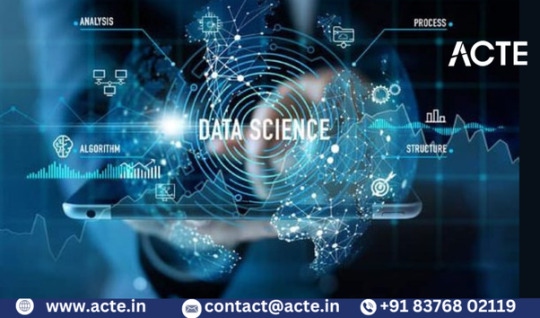
Grasping Data Science:
Data science can be likened to a skilled navigator in the vast ocean of numbers. It involves the meticulous collection of data from various sources, refining it through meticulous processes, and utilizing specialized methodologies to unearth the invaluable insights hidden within.
The Inner Workings of Data Science:
Data Acquisition: Imagine gathering pieces of a scattered mosaic. Data scientists meticulously gather information from diverse channels such as websites, applications, or sensors.
Data Cleansing: Much like purifying gold from impurities, data often requires meticulous refining. Data scientists meticulously sift through the data to eliminate errors or extraneous elements, ensuring its integrity and reliability.
If you want to learn more about Data Science, I highly recommend the Data Science online training because they offer certifications and job placement opportunities. You can find these services both online and offline.
Pattern Identification: Here lies the essence of the pursuit! Through sophisticated analytical tools and techniques, data scientists embark on a quest to discern recurring patterns and correlations within the data, akin to piecing together fragments of a grand tapestry.
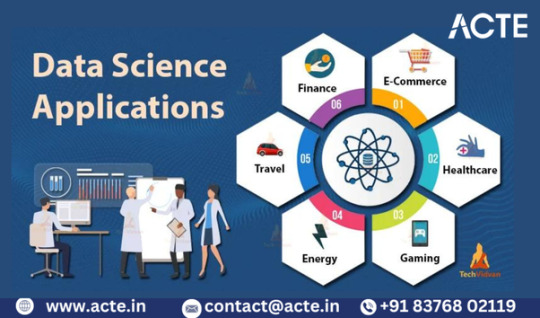
Predictive Analytics: Once patterns begin to emerge, data scientists harness their insights to forecast future trends or occurrences, akin to foreseeing the next move in a strategic game.
Insight Communication: Lastly, data scientists articulate their findings in a coherent and comprehensible manner, akin to narrating an enthralling tale. This facilitates informed decision-making among stakeholders, enabling them to leverage data-driven insights effectively.
The Impact of Data Science:
Data science serves as a linchpin for informed decision-making across diverse domains. From personalized recommendations on digital platforms like Netflix to enhancing healthcare diagnostics, its applications are manifold and far-reaching.
Concluding Thoughts:
In the realm of data science, complexity is distilled into clarity, and ambiguity gives way to insight. It empowers individuals and organizations alike to navigate the labyrinth of data with confidence, unlocking new avenues for innovation and progress. So, the next time you encounter the term "data science," envision it as a beacon illuminating the path towards understanding and harnessing the power of numbers in our data-driven world.
0 notes
Text
Key Approaches for Effective Data Visualization in Data Science Projects
In the realm of data science projects, data visualization serves as a crucial tool for unraveling complex datasets and communicating insights to stakeholders clearly. Here are some essential strategies to ensure that your data visualizations are both informative and impactful from the best data science course in Bangalore.
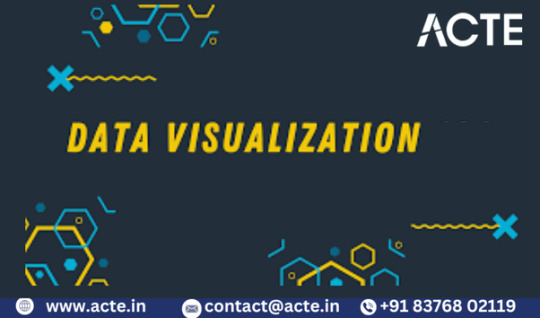
Understanding Your Audience: Before diving into creating visualizations, it's essential to have a deep understanding of who will be viewing them and what information they are seeking. Tailor your visuals to suit their level of expertise and specific interests.
Choosing the Right Visual Representation: Different datasets and insights call for different types of visual representations. For example, bar charts are useful for comparing categories, while line charts are ideal for illustrating trends over time. Select the appropriate visualization type to effectively convey your message.
If you want to learn more about Data Science, I highly recommend the Data Science online training because they offer certifications and job placement opportunities. You can find these services both online and offline.
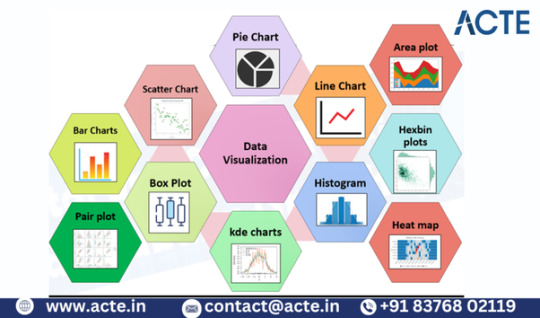
Simplifying and Focusing: Avoid overwhelming your visualizations with unnecessary elements. Keep them clean and focused on conveying the main message. Remove any distractions that don't contribute to the insight you're trying to convey.
Effective Use of Color: Color can enhance the readability and visual appeal of your visualizations. However, it's important to use color judiciously and maintain a cohesive color scheme to avoid confusion. Ensure that the colors you choose help highlight important information without overshadowing the data.
Providing Context: Context is crucial for helping viewers understand the significance of the data. Include clear labels, titles, and annotations to explain what the visualization represents and what insights can be derived from it.
Ensuring Accessibility: Make sure your visualizations are accessible to all viewers, including those with visual impairments. Use alternative text, patterns, and labels to convey information effectively to a diverse audience.
Iterating and Improving: Data visualization is an iterative process. Don't be afraid to experiment with different visualization techniques and refine your visuals based on feedback. Continuous improvement is key to creating impactful visualizations.
Telling a Compelling Story: Use your visualizations to tell a story that guides viewers through the data and highlights key insights. Structure your visualizations in a logical sequence that leads to a clear conclusion or actionable recommendation.
Embracing Interactivity: Interactive visualizations can engage viewers and allow them to explore the data in more detail. Incorporate interactive elements such as tooltips, filters, and drill-down capabilities to enhance the viewer's experience.
Seeking Feedback and Collaboration: Lastly, seek feedback from colleagues, stakeholders, and end-users to ensure that your visualizations effectively communicate the intended message. Collaboration and feedback are essential for creating impactful data visualizations.
By following these key approaches, you can create data visualizations that effectively convey insights and drive informed decision-making in data science projects. Remember to keep the focus on clarity, simplicity, and relevance to maximize the impact of your visualizations.
0 notes
Text
Unveiling the Latest Trends in Data Science for 2024
Data science remains a dynamic domain, constantly evolving with fresh methodologies and technologies. As we progress further into 2024, it's paramount for data science professionals to keep pace with emerging trends to maintain their effectiveness in the field. In this blog post, we'll delve into several burgeoning trends in data science that practitioners should be attuned to this year from the best data science course in Bangalore.
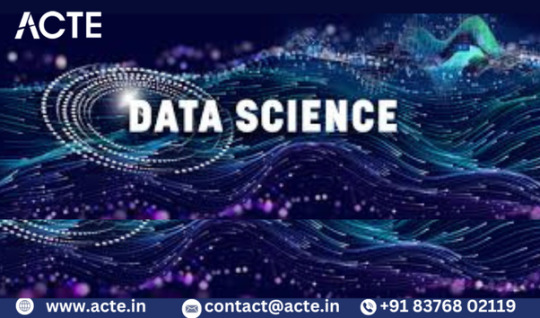
1. Ethical AI and Responsible AI: The ubiquitous integration of artificial intelligence (AI) and machine learning (ML) prompts a heightened focus on ethical considerations and responsible AI practices. It entails addressing biases, ensuring fairness, transparency, and taking accountability for AI outcomes. Organizations are increasingly investing resources into cultivating ethical AI practices and adhering to regulatory frameworks.
2. Federated Learning: The advent of federated learning presents a novel method for training ML models across multiple decentralized devices or servers without compromising data privacy. This trend gains momentum as enterprises seek to glean insights from distributed data sources while upholding privacy and security protocols. Embracing federated learning allows professionals to collaborate on model training while safeguarding sensitive data.
3. Automated Machine Learning (AutoML): AutoML platforms are on the rise, empowering users with varying levels of ML expertise to streamline model development and deployment. These platforms automate various stages of the ML pipeline, from data preprocessing to model selection and tuning. The increasing accessibility of AutoML tools democratizes AI technology and expedites the model development process.
If you want to learn more about Data Science, I highly recommend the Data Science online training because they offer certifications and job placement opportunities. You can find these services both online and offline.
4. Explainable AI (XAI): The concept of explainable AI underscores the necessity for AI systems to provide comprehensible explanations for their decisions and predictions. This is particularly crucial in sectors such as healthcare and finance where transparency is paramount. Professionals are actively integrating XAI techniques to bolster transparency and regulatory compliance.
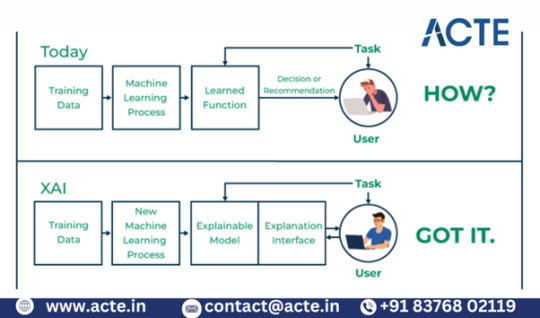
5. Edge Computing and Edge AI: Edge computing involves processing data in proximity to its source, such as IoT devices, rather than relying solely on centralized servers. Complemented by Edge AI, this trend facilitates real-time data analysis and decision-making while minimizing dependence on cloud infrastructure. Edge computing proves invaluable for applications necessitating low latency and heightened privacy.
6. Quantum Machine Learning: Quantum machine learning emerges at the intersection of quantum computing and ML, offering the potential for accelerated problem-solving capabilities. Quantum computers exhibit the ability to tackle complex optimization problems at unparalleled speeds, promising advancements in ML algorithms. Although nascent, quantum machine learning holds promise for revolutionizing data science practices.
7. DataOps: DataOps embodies a set of practices and technologies aimed at enhancing collaboration, automation, and agility in data-centric workflows. Analogous to DevOps in software development, DataOps emphasizes continuous integration, version control, and monitoring throughout the data lifecycle. By embracing DataOps principles, organizations optimize data workflows and expedite insights delivery.
Conclusion: As 2024 unfolds, staying abreast of these emerging trends is imperative for data science professionals to navigate the evolving landscape successfully. By embracing ethical AI, federated learning, AutoML, XAI, edge computing, quantum machine learning, and DataOps practices, practitioners can propel innovation and unlock novel opportunities in data science. Remaining vigilant of these trends is pivotal for staying ahead in this ever-evolving field.
0 notes
Text
Beginner's Guide: Essential Books to Initiate Your Data Science Exploration
Interested in delving into the dynamic realm of data science but unsure how to commence your journey? Worry not! Below, we've curated a selection of five introductory books tailored for beginners, primed to equip you with the foundational knowledge needed to navigate the intricate landscape of data science from the best data science course in Bangalore.
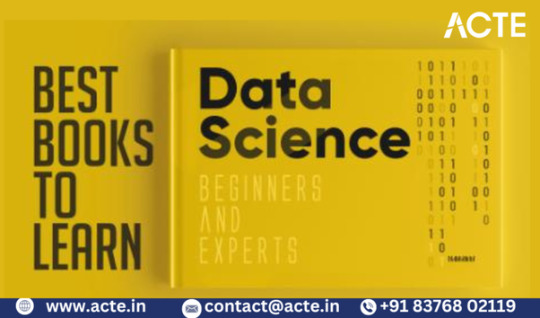
"Data Science Demystified" by Jake VanderPlas
Providing a user-friendly entry point into data science essentials, this book covers key concepts such as data manipulation, visualization, and rudimentary machine learning techniques. Through straightforward explanations and practical Python examples, VanderPlas ensures that even novices can comprehend intricate subjects with ease.
If you want to learn more about Data Science, I highly recommend the Data Science online training because they offer certifications and job placement opportunities. You can find these services both online and offline.
"Python Proficiency for Data Analysis" by Jake VanderPlas
If you're new to Python and aspire to leverage it for data-centric tasks, this guide is tailor-made for you. VanderPlas walks you through indispensable Python libraries like NumPy, Pandas, Matplotlib, and Scikit-Learn, offering hands-on exercises to reinforce comprehension and foster proficiency in data analysis and visualization.
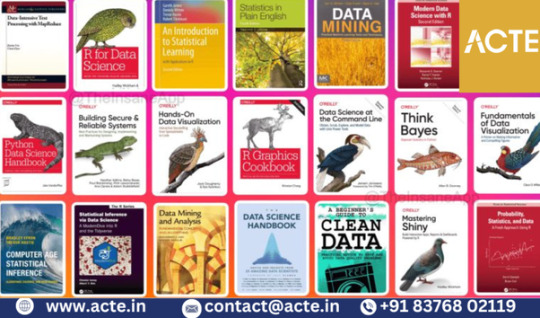
"Foundations of Statistical Learning" by Gareth James, Daniela Witten, Trevor Hastie, and Robert Tibshirani
Tailored for beginners, this book introduces statistical learning and machine learning fundamentals in a digestible manner. Real-world examples and pragmatic applications are employed by the authors to demystify intricate algorithms, ensuring accessibility for readers lacking prior exposure to statistical or machine learning concepts.
"Embarking on Data Science" by Joel Grus
For enthusiasts eager to unravel the underlying mechanisms of data science algorithms, this guide is an invaluable resource. Grus adopts a hands-on approach, elucidating fundamental algorithms like linear regression, k-nearest neighbors, and neural networks through Python code snippets. By constructing these algorithms from scratch, readers gain profound insights into their inner workings.
"Crafting Impactful Data Narratives" by Cole Nussbaumer Knaflic
Effective communication plays a pivotal role in data science endeavors, and this book imparts invaluable insights into creating compelling data visualizations that convey impactful narratives. Knaflic shares pragmatic techniques for designing lucid and concise visualizations that effectively communicate insights to diverse audiences.
These five handpicked books serve as indispensable companions for aspiring data science enthusiasts embarking on their educational journey. Whether your aim is to master Python for data analysis, delve into machine learning intricacies, or refine your data visualization acumen, these resources provide an ideal starting point. Happy reading and may your data science exploration be enriching and fulfilling!
0 notes
Text
Charting Your Course in the Field of Data Science
Welcome to our blog, where we delve into the dynamic journey of a data scientist's career, offering valuable insights for newcomers and seasoned professionals alike. Whether you're taking your first steps or seeking to advance in this ever-evolving field, this guide will illuminate the path ahead from the best data science course in Bangalore.

1. Embarking on Your Journey:
Beginning your quest to become a data scientist entails acquiring essential skills and knowledge. This often involves mastering the fundamentals of mathematics, statistics, and programming languages such as Python or R. Various resources, including online courses, bootcamps, and academic programs, cater to developing these foundational competencies.
2. Establishing a Solid Foundation:
Once equipped with fundamental skills, it's time to delve deeper into specialized areas of data science, such as machine learning, data visualization, and big data technologies. Practical experience gained through projects and internships is invaluable for refining your skills and gaining real-world insight.
3. Discovering Your Focus:
Data science encompasses a wide array of specializations, including but not limited to:
Machine Learning Engineer: Focused on developing and deploying machine learning models.
Data Engineer: Responsible for designing, building, and maintaining data systems and architectures.
Data Analyst: Analyzes data through statistical methods and visualization techniques to derive insights.
Business Analyst: Applies data science to address business challenges and inform strategic decisions.
AI Research Scientist: Engages in research to advance the field of artificial intelligence and machine learning.
Explore these diverse areas to identify your interests and strengths, then specialize in your chosen field.
4. Accumulating Practical Experience:
Experience is essential for advancing in your data science career. Seek opportunities to work on diverse projects, collaborate with cross-functional teams, and continually learn from your experiences. Building a strong portfolio of projects demonstrates your abilities and problem-solving skills.
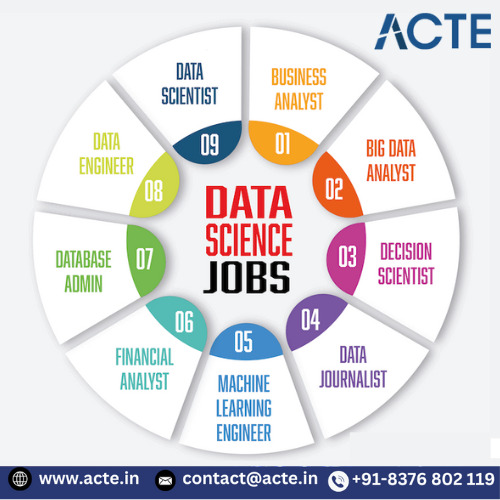
If you want to learn more about Data Science, I highly recommend the Data Science online training because they offer certifications and job placement opportunities. You can find these services both online and offline.
5. Continuous Learning and Development:
The field of data science is constantly evolving, with new technologies and methodologies emerging regularly. Stay updated on the latest trends, attend conferences, participate in workshops, and engage with online communities to stay abreast of industry developments and network with peers.
6. Advancing Your Career Trajectory:
As you gain experience and expertise in your chosen area, consider advancing into leadership roles such as data science manager, analytics director, or chief data officer. Leadership positions require not only technical proficiency but also strong communication, strategic thinking, and project management skills.
Conclusion:
The journey to becoming a successful data scientist offers countless opportunities for growth and advancement. By building a solid foundation, discovering your niche, gaining experience, and continuously learning, you can navigate your way to a fulfilling and prosperous career in data science.
We hope this guide has provided valuable insights into the path of a data scientist's career. Remember to stay curious, embrace challenges, and leverage data to drive innovation and positive change. Good luck on your data science journey!
0 notes
Text
Mastering Your Data Scientist Interview: A Comprehensive Guide
Preparing for a data scientist interview may seem like a daunting task, but fear not – with the right approach, you can tackle it successfully. Here's a breakdown of how to get yourself ready from the best data science course in Bangalore.

1. Decode the Job Description:
Begin by dissecting the job description. Pay close attention to the skills and qualifications required, as well as any specific tools or technologies mentioned. This will give you a clear understanding of what the company is looking for and enable you to tailor your preparation accordingly.
2. Review Core Concepts:
Ensure you have a solid understanding of fundamental data science concepts such as statistical analysis, machine learning algorithms, data visualization, and data manipulation techniques. Reinforce these concepts by revisiting textbooks, online courses, or platforms like Kaggle.
3. Hone Your Coding Skills:
Proficiency in coding is essential for data scientists. Be prepared to demonstrate your abilities in languages like Python or R, as well as familiarity with key libraries such as pandas, NumPy, and scikit-learn. Practice coding challenges and algorithm problems on platforms like LeetCode or HackerRank to sharpen your skills.
4. Showcase Your Projects:
Highlight any relevant projects you've worked on, whether through academic research, internships, or personal initiatives. Be ready to discuss your problem-solving process, methodologies used, and the outcomes achieved. Practical experience is highly valued by employers.
If you want to learn more about Data Science, I highly recommend the Data Science online training because they offer certifications and job placement opportunities. You can find these services both online and offline.
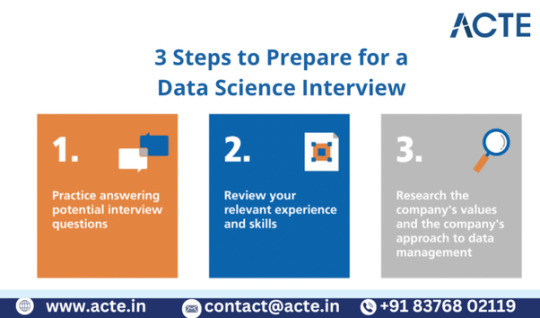
5. Expect Technical Questions:
Be prepared to answer technical questions related to data analysis, machine learning, and statistics. Practice responding to queries on topics such as hypothesis testing, model evaluation, and feature engineering. Familiarize yourself with common interview questions and engage in mock interviews to build confidence.
6. Stay Updated on Industry Trends:
Keep abreast of the latest trends, advancements, and best practices in the field of data science. Stay connected by following industry blogs, attending conferences or webinars, and participating in online communities. Being informed about emerging technologies and methodologies demonstrates your commitment to professional growth.
7. Develop Soft Skills:
In addition to technical proficiency, employers value candidates with strong communication, problem-solving, and teamwork skills. Be prepared to discuss your collaborative approach, how you tackle challenges, and your ability to explain complex concepts to non-technical stakeholders.
8. Research the Company:
Take the time to research the company's products, services, culture, and values. Understanding their mission and goals will not only help you tailor your responses during the interview but also demonstrate your genuine interest in the organization.
Conclusion:
Preparing for a data scientist interview requires a multifaceted approach, encompassing technical knowledge, practical experience, and soft skills. By decoding the job description, reviewing core concepts, honing your coding skills, showcasing your projects, and staying informed about industry trends, you'll position yourself for success. Emphasize strong communication and problem-solving abilities, and demonstrate your enthusiasm for the company through thorough research. With diligent preparation and confidence, you'll navigate the interview process effectively and secure your desired role as a data scientist. Best of luck!
0 notes
Text
A Beginner's Guide to Embarking on the Data Science Path
Are you intrigued by the vast realm of data science but feel overwhelmed by where to start? You're not alone. While data science may seem complex at first glance, it's entirely accessible with the right approach and resources. In this beginner's guide, we'll walk you through some simple steps to take your first steps into the exciting world of data science from the best data science course in Bangalore.
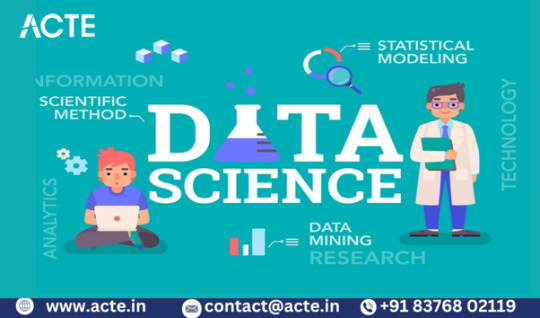
Step 1: Grasp the Basics
Before delving into the technicalities, it's crucial to understand the fundamentals of data science. Essentially, data science involves extracting insights from both structured and unstructured data using a blend of statistics, computer science, and domain knowledge.
Step 2: Embrace Python
Python is the language of choice for data scientists due to its simplicity and versatility. If you're new to programming, fear not! Python is beginner-friendly, and there are plenty of resources available online to help you get started.
Step 3: Familiarize Yourself with Data Tools
To work effectively with data, you'll need to become familiar with various tools and libraries. Popular ones include Pandas for data manipulation, NumPy for scientific computing, and Matplotlib for data visualization.
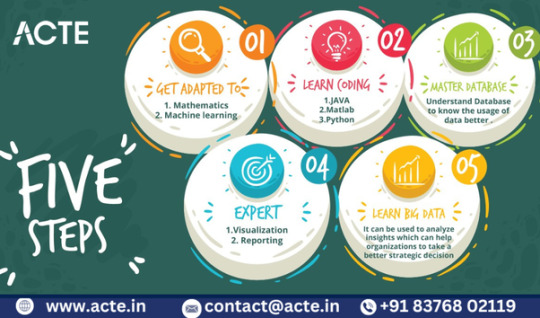
Step 4: Explore Data Science Concepts
To deepen your understanding, explore key concepts such as data cleaning, exploratory data analysis, and machine learning. These form the foundation of data science and will help you tackle real-world problems effectively.
Step 5: Practice, Practice, Practice
The best way to learn is by doing. Start with small projects or participate in competitions to apply your knowledge and build your skills.
Step 6: Stay Curious and Keep Learning
Data science is a rapidly evolving field, so it's essential to stay curious and keep learning. Follow industry trends, join online communities, and seek out opportunities for continuous growth.
By following these steps and staying committed to your learning journey, you'll be well on your way to becoming a proficient data scientist. Good luck!
0 notes
Text
Evaluating the Merits of a Data Science Master's Degree
In today's data-centric landscape, the demand for adept data scientists continues to soar. With an abundance of data at our disposal, businesses are constantly seeking individuals who can effectively analyze and interpret this wealth of information to drive strategic decision-making. Opting for a Master's degree in Data Science may seem like a logical progression toward entering this dynamic field, but does it truly offer worthwhile benefits? Let's explore the advantages and drawbacks from a different angle from the best data science course in Bangalore.
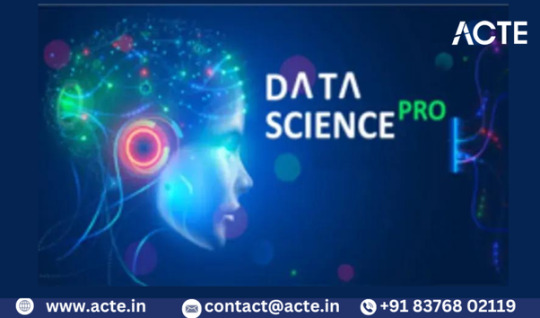
Upsides:
Niche Expertise: Enrolling in a Data Science Master's program affords an opportunity to delve deeply into various domains, such as statistical analysis, machine learning, data visualization, and big data technologies. This specialized knowledge can significantly bolster your competitiveness in the job market.
Career Advancement: Holding a Master's degree can serve as a catalyst for career progression, opening doors to higher-level positions and potentially commanding better salaries within the data science domain. Many employers place a premium on candidates with advanced degrees, particularly for leadership roles or specialized functions.
Networking Channels: Graduate programs often provide platforms for networking with industry professionals, alumni, and peers. Establishing a robust professional network can prove invaluable for exploring job opportunities or fostering collaborative ventures in the future.
Practical Exposure: Numerous Master's programs integrate practical, hands-on experiences such as internships, capstone projects, or research opportunities. This firsthand exposure facilitates skill development and cultivates familiarity with industry tools and methodologies.
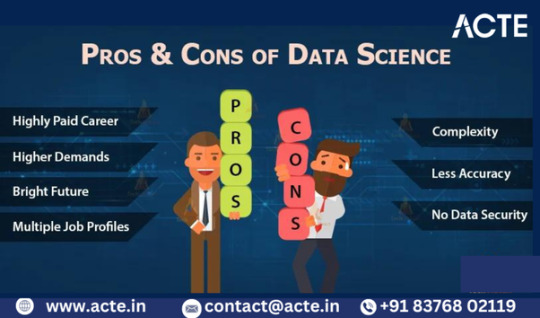
Downsides:
Temporal and Financial Investment: Pursuing a Master's degree entails a significant commitment of time and financial resources. Tuition fees, coupled with living expenses, can pose a considerable financial burden. Moreover, dedicating one to two years to full-time study means sacrificing potential earnings during that period.
Competitive Job Market: Despite the soaring demand for data scientists, the job market remains fiercely competitive, especially for entry-level positions. Possessing a Master's degree does not guarantee employment, and candidates may find themselves contending with individuals boasting relevant work experience or specialized skill sets.
Technological Dynamics: The field of data science is characterized by rapid technological advancements, with new tools and methodologies continually emerging. Some argue that formal education may struggle to keep pace with these developments, suggesting that self-directed learning or professional certifications could offer comparable benefits.
Alternative Pathways: It's worth acknowledging that a Master's degree is not the sole pathway into data science. Many professionals transition into the field from related disciplines such as computer science, mathematics, or economics through avenues like self-study, online courses, boot camps, or on-the-job training.
In summation, the decision to pursue a Master's in Data Science hinges on individual circumstances, career aspirations, and preferences. While it can equip you with valuable skills, knowledge, and networking opportunities, it also demands a significant investment of time and financial resources. Ultimately, carefully weighing the pros and cons and exploring alternative pathways can help you make an informed decision aligned with your professional goals and aspirations.
0 notes
Text
Unveiling the Importance of Data Science
In today's digital era, data science plays a central role in driving progress and strategic decision-making across various sectors. Here's a fresh take on why data science is so crucial from the best data science course in Bangalore.

1. Enlightened Decision-Making: Data science empowers organizations with invaluable insights extracted from thorough data analysis, enabling informed decision-making. By identifying patterns and trends, businesses can navigate their way through strategic choices with clarity.
2. Enhanced Operational Efficiency: Through the effective use of algorithms and automation, data science optimizes operations, reducing inefficiencies and boosting productivity. This seamless integration of data-driven processes streamlines workflows, leading to cost savings and fewer errors.
3. Customized Customer Experiences: By leveraging data analysis, businesses can create tailored experiences for their customers. Understanding consumer preferences and behaviors allows for the development of personalized products, services, and marketing strategies, fostering stronger customer connections.
If you want to learn more about Data Science, I highly recommend the Data Science online training because they offer certifications and job placement opportunities. You can find these services both online and offline.
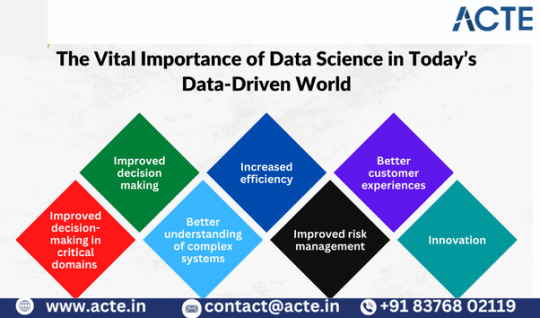
4. Proactive Predictive Insights: With predictive analytics, organizations can anticipate future trends and behaviors based on past data. This foresight empowers proactive decision-making, helping businesses seize opportunities, mitigate risks, and allocate resources effectively.
5. Driving Innovation: Data science serves as a catalyst for innovation, uncovering new insights that inspire the creation of groundbreaking products, services, and business models. Through experimentation and continuous improvement, businesses can stay ahead of the curve and adapt to changing market conditions.
6. Competitive Advantage: In today's competitive landscape, data-driven insights give businesses a significant edge. Companies proficient in data science can outperform competitors by leveraging market insights to craft agile strategies and capitalize on emerging trends.
7. Addressing Complex Challenges: Data science tackles complex issues across various domains, such as healthcare, finance, and cybersecurity. Through advanced analytics, experts can unravel complexities and develop impactful solutions to pressing societal problems.
In summary, data science is pivotal for driving innovation, efficiency, and growth in the modern world. By harnessing the power of data, organizations can unlock new opportunities, make informed decisions, and thrive in a data-driven environment.
0 notes
Text
Deciphering Data: Harnessing Visualization Tools for Insightful Analysis
In the realm of data analysis, the ability to visualize data effectively is paramount to extracting meaningful insights. Data analysts rely on a diverse set of visualization tools to translate raw data into actionable intelligence. Below, we'll explore several prominent tools favored by analysts for this purpose from the best data science course in Bangalore.
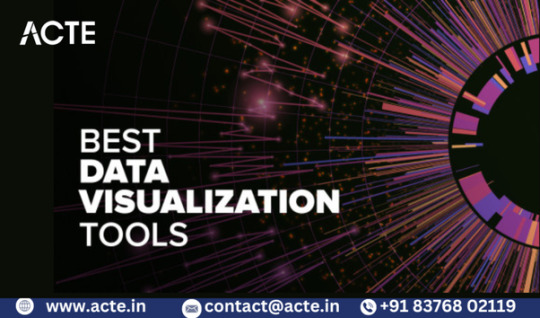
Tableau: Recognized for its intuitive interface, Tableau empowers analysts to create dynamic dashboards and visualizations with ease. Through simple drag-and-drop functionality, users can generate a wide range of visual representations, from basic charts to sophisticated predictive models. Tableau also offers advanced features such as data blending and spatial mapping for comprehensive analysis.
Microsoft Power BI: Seamlessly integrating with Microsoft's ecosystem, Power BI is a versatile tool for data visualization and business intelligence. Its seamless connectivity with various data sources enables analysts to transform raw data into compelling visuals, including charts, graphs, and geographical maps. With real-time analytics and collaboration capabilities, Power BI facilitates data-driven decision-making across organizations.
If you want to learn more about Data Science, I highly recommend the Data Science online training because they offer certifications and job placement opportunities. You can find these services both online and offline.
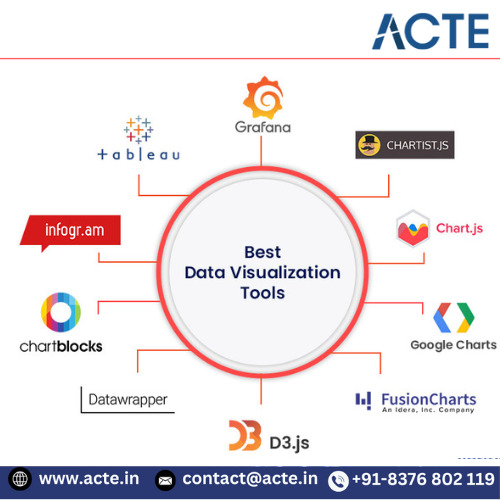
Python's Matplotlib and Seaborn: Tailored for analysts proficient in coding, Matplotlib and Seaborn are popular libraries for data visualization in Python. Matplotlib provides a robust set of plotting functions for creating basic visuals, while Seaborn simplifies the process of generating complex statistical plots. Leveraging Python's extensive ecosystem, these libraries empower analysts to manipulate and explore data efficiently.
R ggplot2: Following the principles of grammar of graphics, ggplot2 is a favored choice for data visualization in the R programming language. Its concise syntax enables analysts to craft intricate visualizations by combining elementary components. With a plethora of visualization options and customization features, ggplot2 serves as a valuable tool for conveying insights effectively.
Plotly: Available across multiple programming languages, including Python, R, and JavaScript, Plotly offers versatility and interactivity. Supporting an extensive range of chart types and equipped with features for building web-based visualizations, Plotly facilitates exploratory data analysis and the development of interactive dashboards and applications.
In essence, data visualization lies at the core of data analysis, enabling analysts to derive actionable insights from complex datasets. Whether through user-friendly interfaces like Tableau and Power BI or through coding with Python and R, analysts possess an array of tools to transform data into valuable knowledge, driving informed decision-making and organizational success.
0 notes
Text
Diving Deep into Data Insights: Exploring Advanced Analytics
In today's data-centric world, the ability to extract meaningful insights from complex datasets is indispensable. Advanced analytics courses aim to equip professionals with the necessary skills to tackle intricate data challenges and uncover actionable intelligence. Let's delve into the key areas covered in these courses from the best data science course in Bangalore.

Mastering Machine Learning: Advanced analytics programs delve into the intricacies of machine learning, covering a diverse range of algorithms and their practical applications. Participants gain a profound understanding of algorithmic workings and learn to adeptly apply them across various real-world scenarios.
Venturing into Deep Learning: With the surge of deep learning, these courses often include in-depth modules on neural networks and their derivatives. Participants learn to construct and train advanced models tailored for tasks such as image recognition and natural language processing.
Predictive Modeling Expertise: Central to advanced analytics is predictive modeling, which empowers organizations to forecast future outcomes based on historical data patterns. Participants delve into advanced predictive modeling techniques, including time series analysis and feature engineering.
If you want to learn more about Data Science, I highly recommend the Data Science online training because they offer certifications and job placement opportunities. You can find these services both online and offline.
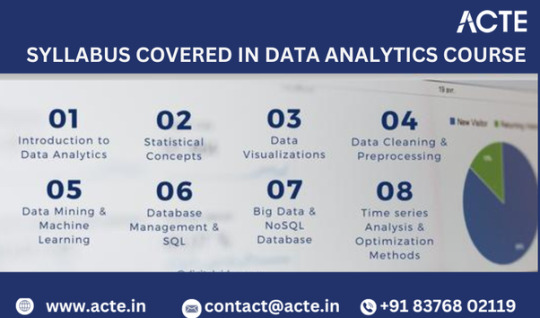
Leveraging Big Data: Advanced analytics programs cover cutting-edge tools and technologies essential for efficiently analyzing vast datasets. Participants become proficient in leveraging platforms like Apache Hadoop and Apache Spark, as well as programming languages such as Python and R for robust big data processing and analysis.
Optimization Strategies: Optimization techniques are pivotal for resolving intricate business challenges and optimizing decision-making processes. Participants explore diverse optimization methods, encompassing linear and integer programming, to drive efficiency and strategic decision-making.
Deciphering Textual Data: Textual data presents unique analytical challenges and opportunities. Courses delve into techniques for effectively processing and analyzing textual data, spanning sentiment analysis and natural language processing methodologies.
Crafting Compelling Data Visualizations: Effective communication of insights is paramount for driving informed decision-making. Advanced analytics courses equip participants with the skills to create compelling visualizations using tools like Tableau and Power BI, enhancing data-driven storytelling capabilities.
Ethical and Legal Dimensions: In an era marked by heightened data privacy concerns, understanding the ethical and legal ramifications of analytics is imperative. Participants explore pertinent topics such as data privacy, bias mitigation, and security protocols to ensure ethical and responsible data usage.
In essence, advanced analytics courses offer a comprehensive exploration of diverse topics, ranging from machine learning and predictive modeling to big data analytics and ethical considerations. By investing in advanced analytics education, professionals can elevate their analytical prowess and remain at the forefront of the dynamic field of data analytics.
0 notes
Text
The Importance of Data Analytics in Our Daily Lives
In our modern society, data analytics profoundly shapes our everyday experiences, influencing various aspects of our routines from morning until night. Let's explore why data analytics holds such significance in our daily lives from the best data science course in Bangalore.
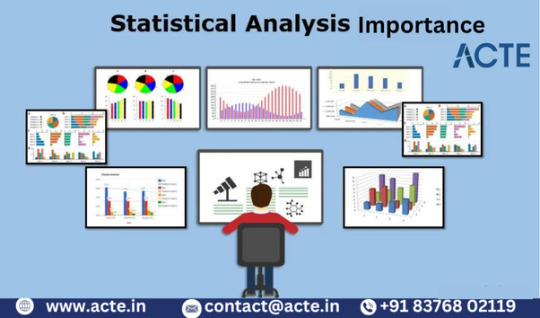
1. Personalized Suggestions: Have you ever noticed how online platforms seem to anticipate your preferences? This phenomenon is made possible by data analytics, which examines your past behaviors, online interactions, and demographic information to offer tailored recommendations perfectly suited to your interests.
2. Health Monitoring: With the prevalence of wearable technology and health-tracking apps, individuals can monitor their fitness levels, sleep quality, and overall well-being. Data analytics processes this health data to provide valuable insights, such as identifying trends, setting achievable goals, and offering personalized health advice.
3. Efficient Time Management: Time is a valuable commodity, and data analytics helps us make the most of it. Whether it's optimizing our commute based on real-time traffic updates, organizing our schedules with digital planners, or identifying patterns in our work habits to boost productivity, data analytics enables us to use our time more effectively.
If you want to learn more about Data Science, I highly recommend the Data Science online training because they offer certifications and job placement opportunities. You can find these services both online and offline.
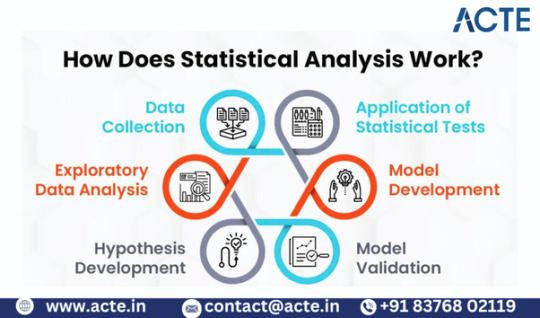
4. Smart Home Automation: The concept of a smart home relies heavily on data analytics. From adjusting lighting and temperature settings to automating routine tasks, data-driven insights enhance convenience and energy efficiency within our homes. Smart devices analyze our usage patterns to automate daily chores and create a living environment tailored to our preferences.
5. Financial Guidance: Managing finances can be complex, but data analytics simplifies the process by offering insights into spending habits, investment opportunities, and budgeting strategies. Whether it's tracking expenses through banking apps or receiving personalized investment recommendations through automated advisors, data analytics empowers individuals to make informed financial decisions.
6. Personalized Learning: In education, data analytics revolutionizes the learning experience by customizing educational content, tracking student progress, and identifying areas for improvement. Adaptive learning platforms utilize data-driven insights to tailor learning materials to each student's unique needs, creating a more engaging and effective learning environment.
7. Informed Decision-Making: Whether it's choosing a restaurant based on online reviews or making important career decisions, data analytics influences our decision-making processes in various aspects of our lives. By analyzing vast amounts of data, data analytics helps us make informed decisions that lead to better outcomes.
In summary, data analytics has become an essential part of our daily lives, enriching our experiences and empowering us to make more informed choices. As technology continues to advance and data-driven solutions become increasingly prevalent, the role of data analytics will continue to expand, shaping how we interact with the world around us.
0 notes
Text
Why Data Science Should Be Your Career Focus in 2024
In today's rapidly evolving digital age, few professions offer the same level of promise and potential as data science. With businesses increasingly relying on data-driven insights to gain a competitive edge, the demand for skilled data scientists continues to soar. If you're contemplating your career path, here's why choosing data science in 2024 is a smart move from the best data science course in Bangalore.

1. Growing Demand:
Data has become indispensable for businesses across all sectors. From making strategic decisions to improving operational efficiency, companies depend on data analysis for success. As a result, the demand for professionals proficient in data interpretation and analysis remains high and is expected to continue growing.
2. Versatile Career Options:
Data science offers a plethora of career paths and specializations to suit various interests and skills. Whether you're inclined towards machine learning, data engineering, or business analytics, there's a niche within data science for you. Opportunities exist in startups, corporations, and government agencies, offering diverse experiences and challenges.
If you want to learn more about Data Science, I highly recommend the Data Science online training because they offer certifications and job placement opportunities. You can find these services both online and offline.

3. Competitive Compensation:
The demand for skilled data scientists translates into attractive salaries and benefits. Organizations recognize the value of individuals who can translate data into actionable insights and are willing to invest in talent that drives innovation and growth.
4. Lifelong Learning:
Data science is a dynamic field that requires continuous learning to stay relevant. From staying updated on the latest technologies to mastering new methodologies, professionals in this field are constantly evolving. Embracing this culture of lifelong learning ensures continued growth and adaptability.
5. Meaningful Impact:
Data science has the potential to make a significant impact across various sectors, from healthcare to finance. By leveraging data insights, professionals can drive positive change, inform decision-making, and address complex challenges facing society.
In summary, pursuing a career in data science in 2024 offers immense opportunities for personal and professional growth. With its high demand, diverse career options, competitive compensation, emphasis on learning, and potential for making a difference, data science remains a compelling choice for aspiring professionals. If you're ready to embark on a rewarding journey that shapes the future, consider exploring the world of data science.
0 notes
Text
Vital Skills for Prospective Data Scientists
Thinking about stepping into the realm of data science? To thrive in this domain, you'll need to foster an array of competencies blending technical prowess, analytical insight, and effective communication. Let's delve into the essential skills crucial for budding data scientists from the best data science course in Bangalore.

Competent Coding: Data scientists lean on languages like Python, R, and SQL to manipulate, analyze, and visualize data. Proficiency in these programming languages is paramount for conducting thorough data analysis and constructing predictive models.
Statistical and Mathematical Aptitude: A solid grasp of statistics and mathematics is indispensable for deciphering data patterns, making precise predictions, and evaluating model efficacy. Understanding concepts like probability, regression analysis, and hypothesis testing lays the groundwork for sound data analysis.
Mastery of Machine Learning: Grasping machine learning algorithms and techniques is fundamental for unraveling intricate problems and harnessing data for predictive insights. Familiarity with algorithms such as decision trees, logistic regression, and clustering equips data scientists to craft robust models.
Data Wrangling Dexterity: Raw data often necessitates cleaning and preprocessing before analysis. Data wrangling entails tasks like handling missing values, transforming data formats, and rectifying inconsistencies to ensure data integrity and usability.
If you want to learn more about Data Science, I highly recommend the Data Science online training because they offer certifications and job placement opportunities. You can find these services both online and offline.
Proficiency in Data Visualization: Compelling data visualization is essential for conveying insights to stakeholders in a lucid and impactful manner. Proficiency in visualization tools like matplotlib, seaborn, or ggplot2 enables data scientists to craft visuals that enhance comprehension and inform decision-making.
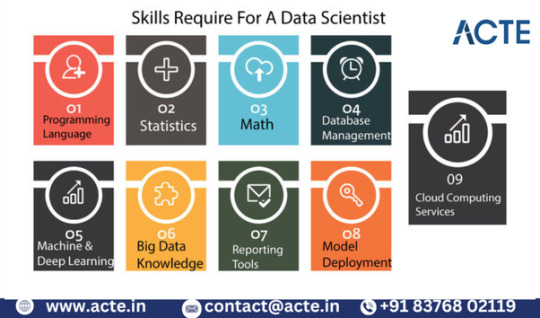
Understanding of Big Data Technologies: With the surge in data volume, familiarity with big data technologies like Hadoop and Spark proves beneficial for processing and analyzing large datasets efficiently. Knowledge of distributed computing frameworks amplifies scalability and performance.
Domain Expertise: A profound understanding of the industry or domain you operate in empowers you to pose pertinent questions, unearth valuable insights, and offer actionable recommendations. Domain knowledge enriches the relevance and resonance of your data analyses.
Robust Problem-Solving Skills: Data science revolves around solving tangible problems using data-driven methodologies. Strong problem-solving acumen, coupled with critical thinking and ingenuity, enables you to navigate challenges adeptly and devise innovative solutions.
Effective Communication: Articulating findings and insights clearly and convincingly is pivotal for driving impact and shaping decision-making. Strong communication skills foster collaboration with peers and ensure that your analyses are comprehensible and actionable.
Commitment to Lifelong Learning: Data science is a rapidly evolving field, with new methodologies and technologies perpetually emerging. Embracing a culture of continuous learning and staying abreast of industry advancements is imperative for staying relevant and advancing your data science journey.
By honing these vital skills, aspiring data scientists can position themselves for success in this vibrant and gratifying field.
0 notes
Text
Setting Off on Your Data Analysis Career: A Detailed Guide
Are you fascinated by the insights hidden within data? Embarking on a data analysis career could be the perfect fit for your passion. In today's data-driven world, organizations rely on skilled analysts to interpret data trends, guide decision-making, and spur progress. If you're eager to take the plunge into this dynamic field, here's a step-by-step guide to get you started from the best data science course in Bangalore.

Step 1: Establish a Solid Groundwork
Before delving into data analysis, it's essential to lay a strong foundation. Begin by acquainting yourself with programming languages like Python or R, as they are fundamental tools in this field. Numerous online platforms, such as Coursera and Udemy, offer beginner-friendly courses tailored to kickstart your learning journey.
Additionally, grasp essential statistical concepts such as probability, hypothesis testing, and regression analysis. Understanding these concepts will form the backbone of your analytical skills.
Step 2: Gain Practical Experience
While theoretical knowledge is crucial, hands-on experience is invaluable. Seek out opportunities to work on real-world projects or internships where you can apply your skills in a practical setting. Engaging in open-source projects or participating in data analysis competitions like Kaggle can further enhance your skills and build a robust portfolio.
Step 3: Develop Specialized Skills
As you progress, consider specializing in specific domains or tools to set yourself apart. Whether it's mastering machine learning algorithms, becoming proficient in data visualization tools like Tableau, or exploring big data technologies like Hadoop, acquiring specialized expertise can broaden your opportunities in the job market.
If you want to learn more about Data Science, I highly recommend the Data Science online training because they offer certifications and job placement opportunities. You can find these services both online and offline.
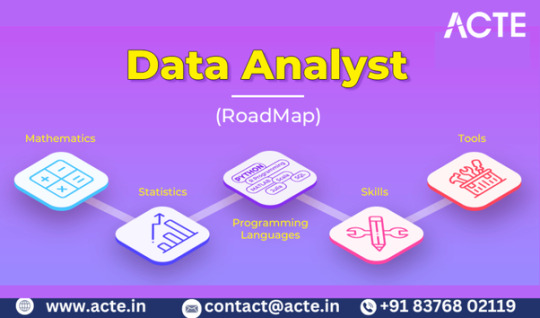
Step 4: Cultivate a Strong Professional Network
Networking is essential in any career path, and data analysis is no exception. Attend industry events, join online forums, and connect with professionals in the field through platforms like LinkedIn. Building a strong network can provide valuable insights, mentorship, and potential job opportunities.
Step 5: Stay Updated with Industry Trends
The field of data analysis is constantly evolving, with new tools and techniques emerging regularly. Stay abreast of the latest trends and developments by following industry blogs, attending webinars, and pursuing advanced courses or certifications.
Step 6: Prepare for Job Interviews
As you prepare to enter the job market, hone your interview skills and be prepared to showcase your expertise. Practice answering common data analysis interview questions, highlight your projects and accomplishments, and demonstrate your problem-solving abilities.
Step 7: Secure Your Desired Role
Armed with a strong foundation, practical experience, specialized skills, a robust network, and interview preparation, you're ready to pursue your dream job in data analysis. Tailor your resume and cover letter to highlight your relevant experiences, and leverage your network to explore job opportunities.
Remember, building a successful career in data analysis requires dedication, continuous learning, and a willingness to adapt to new challenges. With perseverance and passion, you'll carve out a fulfilling and rewarding career in this dynamic field. Best of luck on your journey!
0 notes